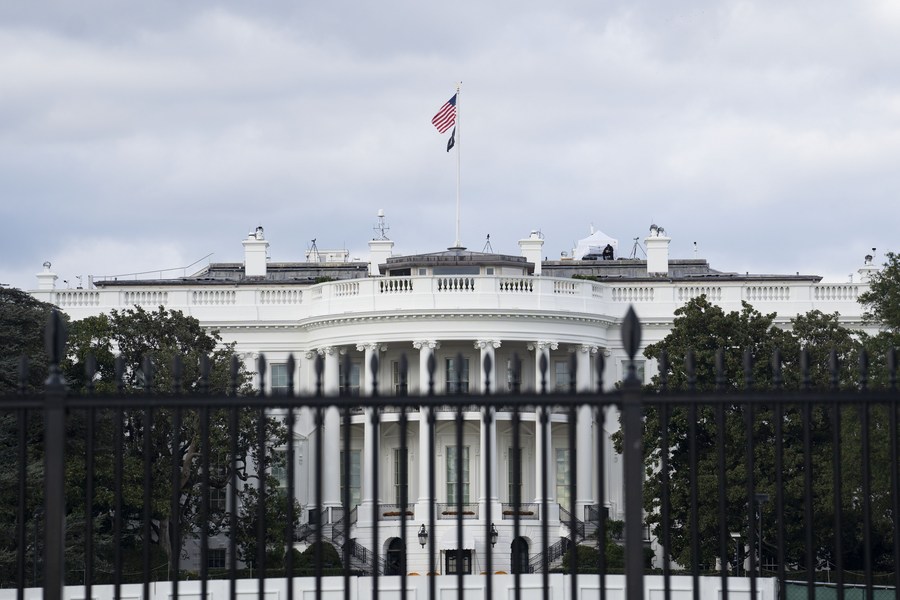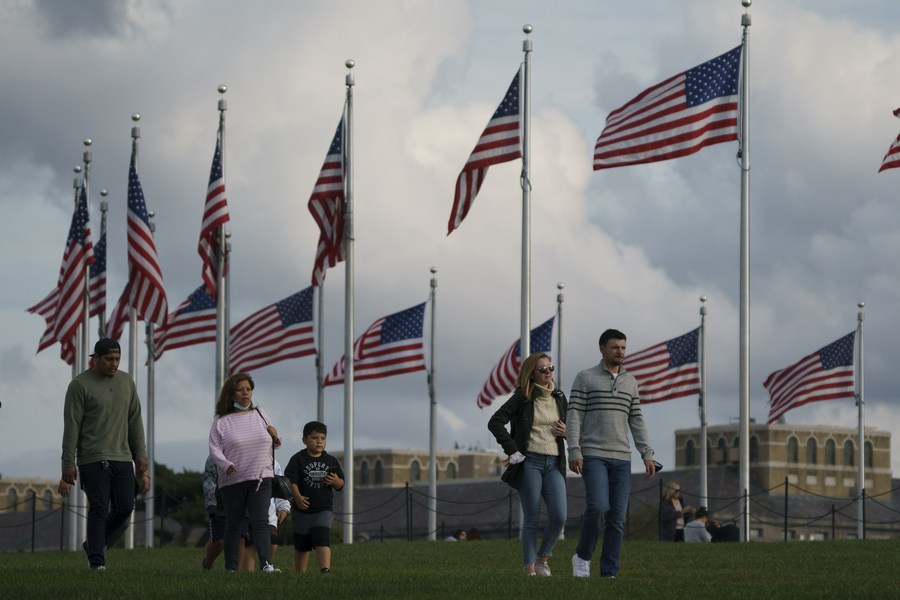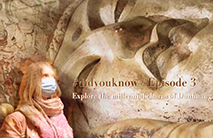What the world thinks of the U.S.

Photo taken on Oct. 28, 2021 shows the White House in Washington, D.C., the United States. (Xinhua/Liu Jie)
Few people in the world believe that the U.S. political system is a positive model for other countries, according to survey results released on November 1 by the Pew Research Center.
People from 17 countries or regions polled for the survey agreed with statements about U.S. military power, the influence of its entertainment industry, and the impact of its technological reach. Most people, however, expressed unfavorable views of its health care system, its handling of the COVID pandemic, its general economic condition and living standards, and the state of its democracy.
Large numbers regard rampant racism as a serious flaw in the U.S. social make-up, with many of the world’s people identifying it as “worse than in their own countries.”
The survey was conducted in the spring of 2021, just months after the Jan. 6th Capitol riot when supporters of former president Trump stormed the Capitol building.

Tourists spend time on the National Mall in Washington D.C., the United States on Oct. 30, 2021, one day after the U.S. Food and Drug Administration (FDA) authorized the emergency use of the Pfizer-BioNTech COVID-19 vaccine in children 5 through 11 years of age. (Photo by Ting Shen/Xinhua)
Negative global opinions about the U.S. political system also worsened as U.S. government data showed close to 700,000 Americans had died of complications due to COVID-19 by the spring of 2021. To date, more than 756,000 have died. According to recent media analysis, Trump’s response to the pandemic—which included calling it a hoax, urging people to use scientifically unproven treatments, encouraging resistance to public health recommendations such as vaccination and mask-wearing—may have led to 160,000 unnecessary deaths.
Violence and threats have become the norm among Trump’s followers. They have used violence and threats to denounce public health officials, politicians and local public-school officials who insist on careful medically-sound responses to the pandemic.
In addition to the creation of large-scale skepticism and bullying about reasonable public health measures, Trump’s refusal to accept defeat in the 2020 presidential election added to negative views of the U.S. Despite the fact that the election was secured by normal electoral procedures, Trump and his campaign backers circulated unverified and frankly irrational rumors about election interference. While investigations of election procedures in Republican-controlled states like Michigan and Arizona found zero evidence of election fraud, Trump and his supporters continued to claim fraud and denounce election officials who insisted on certifying the election for President Biden.
Americans have seen this deepening threat to U.S. civil society worsen over the past year. In my view, degenerating global views of life here are not simply a public relations problem. Conditions here have deteriorated for most people. Economic promise exists for fewer working-class people even as billionaires see their wealth pile up as they fly rockets into space. The major political parties have fewer solutions to offer for the flagging health care system, the declining educational system, and eroded protections for what Americans generally regard as normal, civil participation in the country’s political processes. Indeed, the Constitutional system with its arcane rules about filibusters, gerrymandered congressional representation, and population-based representation allows the powerful few to dominate. Indeed, political or social progress no longer seems achievable in the current party system.
The Pew Research Center, who conducted the survey from Feb. 1 to May 26, 2021, among 18,850 adults in 17 advanced economies, said in the report that ratings of the political system in the U.S. are generally lukewarm, and very few in any public surveyed think American democracy is a good example for other countries to follow. A median of just 17% hold this view. Most people say democracy in the U.S. used to be a good example but has not been in recent years (a median of 57%).
The degeneration of U.S. politics into an irrevocable divide inflamed by anti-democratic propagandists festering within the Trump movement, persistent threats of violence, and the Jan. 6th Capitol riot have caused some scholars such as the Yale philosopher Jason Stanley to warn of the emerging threat of fascism from Trump and his supporters.
The author is an associate professor of Liberal Studies Department at Grand Valley State University in the U.S.
The opinions expressed in the article reflect those of the author, and not necessarily those of People's Daily Online.
Photos
Related Stories
- U.S. Democrats propose COVID-19 vaccine mandate for domestic air travel amid concerns
- Russian diplomat qualifies U.S. "democracy summit" as "chimerical"
- U.S. court pauses release of Trump White House records sought by House Jan. 6 panel
- Americans tighten belts as inflation soars
- U.S. state of New Mexico sees surging COVID-19 cases: NYT
Copyright © 2021 People's Daily Online. All Rights Reserved.










